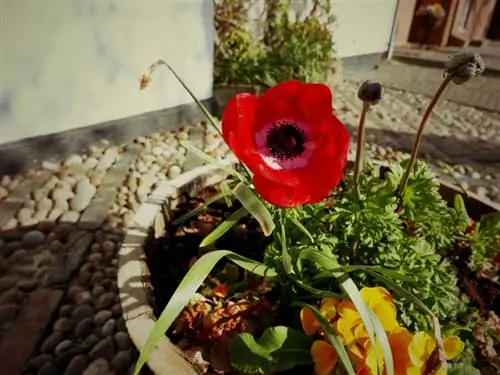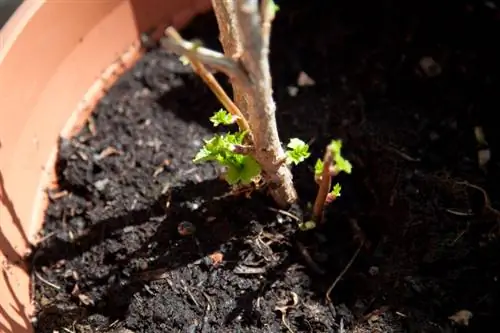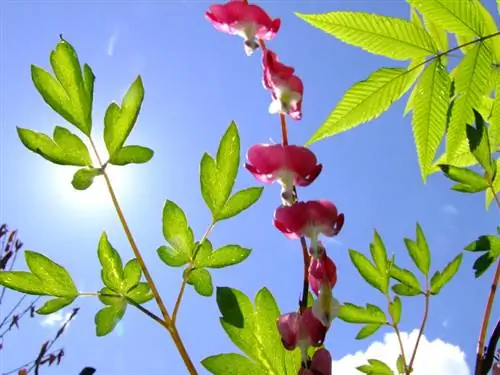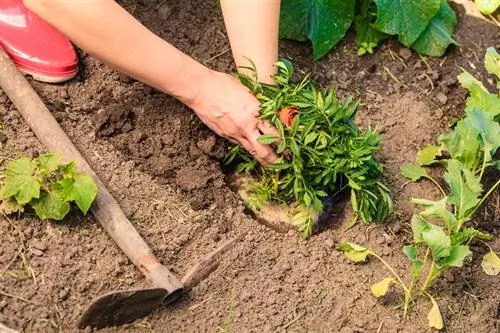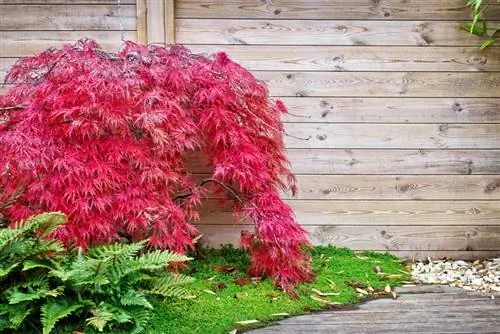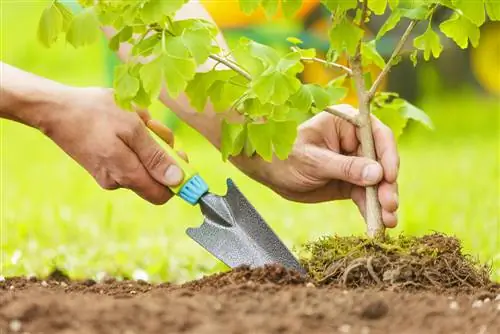- Author admin leonars@hobbygardeners.com.
- Public 2023-12-16 16:46.
- Last modified 2025-01-23 11:20.
Poppy seeds are not particularly easy to transplant due to their long taproots. From a strong, robust plant, root residues usually remain in the ground, which can sprout again under certain circumstances. But this also offers the chance to share plants.
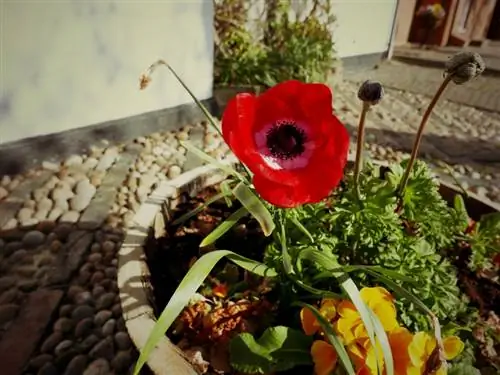
How to transplant poppies correctly?
When transplanting poppies, it is important to dig out the long taproots as completely as possible and to dig a deep planting hole in the new location. Since poppies do not require nutrient-rich soil, you should only add a little compost. It is also possible to divide the strong plants when transplanting.
The best time to transplant
You can plant plants you have grown yourself or purchased in pots practically at any time. The planting hole should be slightly larger than the root ball. You may be able to put some well-rotted compost (€41.00 on Amazon) into the hole to make it easier for the poppy to grow. But don't use too much compost, because poppy seeds don't need nutrient-rich soil.
Poppies growing outdoors are best transplanted outside of the flowering period, i.e. between autumn and the beginning of spring. The new location should be sunny and dry, otherwise you will wait in vain for the flowers to bloom, as most poppy species only bloom in full sun.
How to transplant your poppy
If you want to transplant poppies from your own garden, keep the long taproots in mind. Dig these up as much as possible. The new planting hole should be as deep as the roots are long. If any remaining roots remain in the ground, they may sprout again. If that doesn't bother you, then don't make it a problem and enjoy the young plants.
A strong poppy will not die if the roots are shortened a little. You can even divide these plants by cutting off part of them with a spade and replanting them somewhere else.
The most important tips for transplanting:
- Dig up the roots as completely as possible
- dig new planting hole deep enough
- strong plants may need to be divided immediately
Tips & Tricks
If you want to transplant your poppies, then think about whether dividing the plants would make sense. This way you kill two birds with one stone and save yourself a step.

